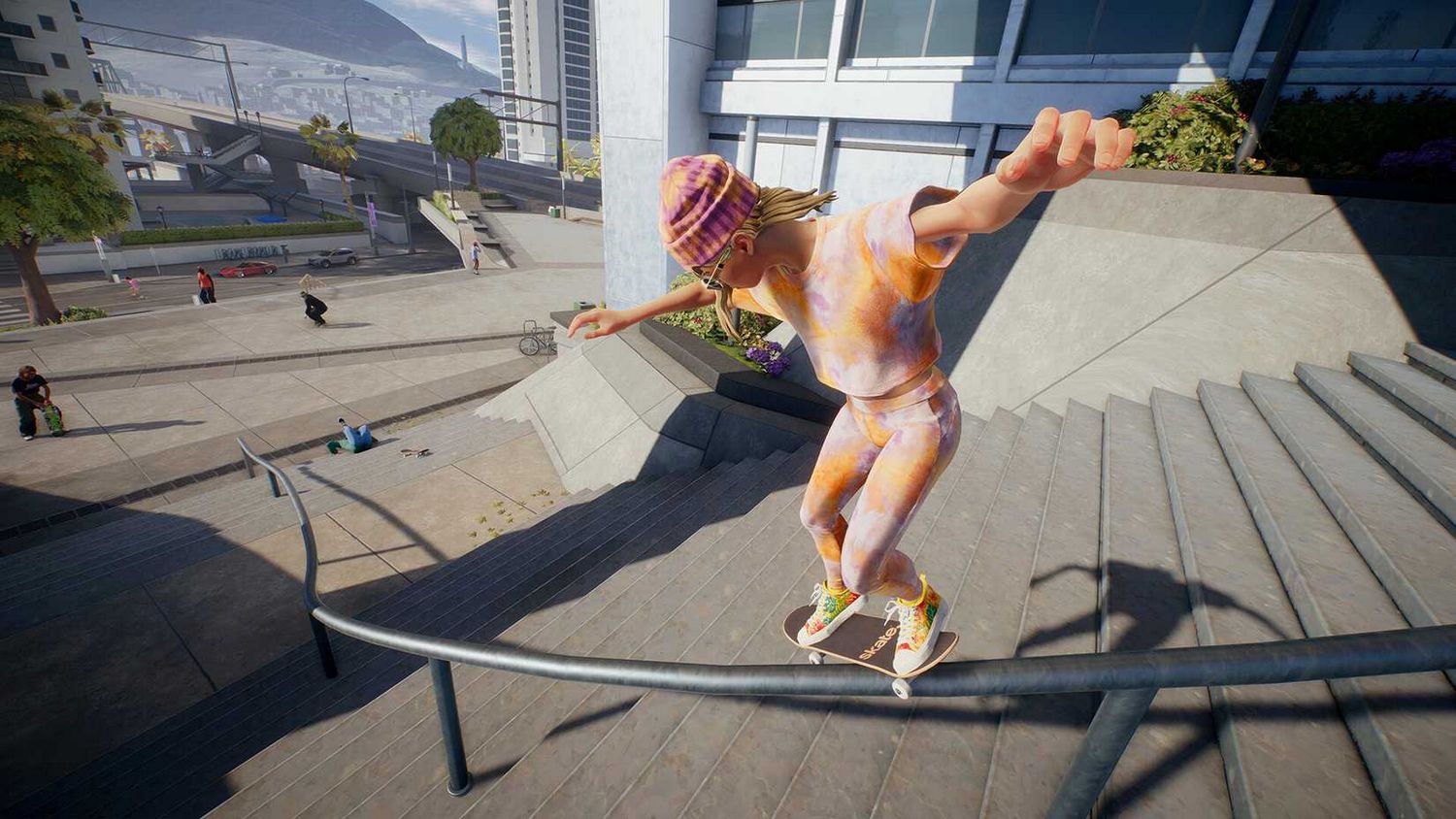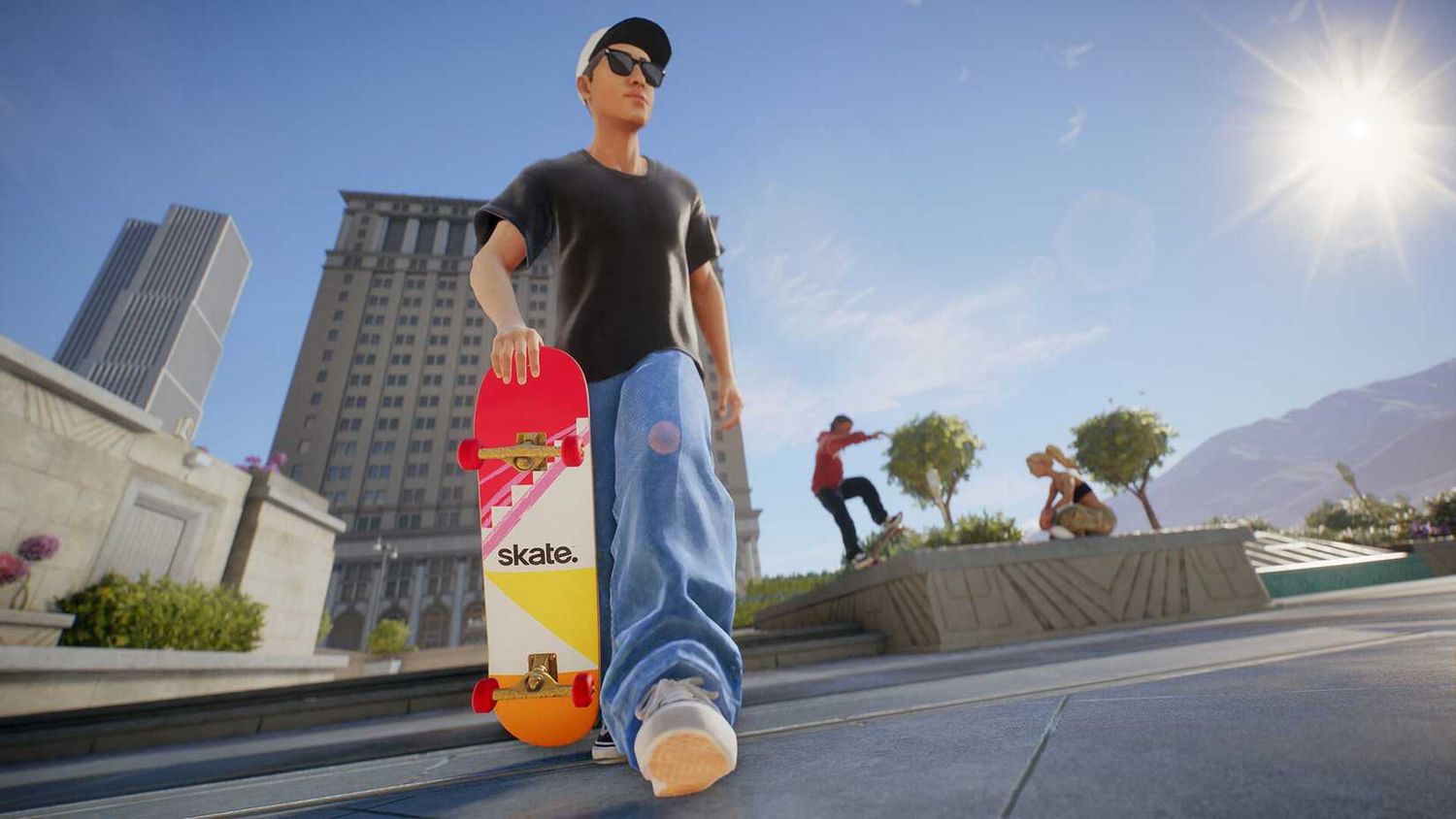New Skate Game ‘Skate.’ Launches to Mixed Steam Reviews: What Went Wrong?
Popular Now
 Counter-Strike 2
Counter-Strike 2
 Candy Crush Saga
Candy Crush Saga
 Brawl Stars
Brawl Stars
 Black Myth: Wukong
Black Myth: Wukong
 R.E.P.O
R.E.P.O
 Free Fire Max
Free Fire Max
 Valorant
Valorant
 Text to Speech Voice
Text to Speech Voice
 Minecraft
Minecraft
 After years of anticipation, the long-awaited reboot of the beloved Skate franchise has officially entered Early Access on Steam. The free-to-play title, simply named skate., has been a major topic of discussion within the gaming community, but its launch has been met with a “Mixed” user review score. While some players praise the core gameplay and “flick-it” controls, a significant portion of the community is voicing frustration over a lack of content and a perceived shift towards a live-service model. This has sparked a heated debate between dedicated fans and those disappointed with the final product, leaving many to wonder if the new game can live up to the legacy of its predecessors.
After years of anticipation, the long-awaited reboot of the beloved Skate franchise has officially entered Early Access on Steam. The free-to-play title, simply named skate., has been a major topic of discussion within the gaming community, but its launch has been met with a “Mixed” user review score. While some players praise the core gameplay and “flick-it” controls, a significant portion of the community is voicing frustration over a lack of content and a perceived shift towards a live-service model. This has sparked a heated debate between dedicated fans and those disappointed with the final product, leaving many to wonder if the new game can live up to the legacy of its predecessors.
The “Mixed” rating, currently sitting at around 46% positive reviews, stems from a variety of complaints. Players have pointed to a notable absence of classic features that defined the original trilogy, such as the fan-favorite “Hall of Meat” mode, “S.K.A.T.E.” missions, and a proper single-player story. In their place, the game offers repetitive challenges and a heavy focus on online multiplayer. Additionally, many users have criticized the game’s visuals, describing the art style as overly sanitized and “soulless,” a stark contrast to the grittier, more realistic aesthetic of the original games. Server issues at launch, which left thousands of players in long queues, also contributed to the initial negative sentiment.
The Core Gameplay: A Glimmer of Hope
 Despite the criticism, there is a silver lining. The one aspect that most players seem to agree on is that the core skateboarding mechanics are excellent. Developer Full Circle, a new studio under Electronic Arts, has successfully recreated and refined the iconic “flick-it” control system that made the original games so popular. The feeling of pulling off a successful trick, the physics of a perfect grind, and the overall smoothness of the skating have been largely praised. This is a crucial point, as the gameplay is the foundation of any great skateboarding game. Many positive reviews on Steam highlight this, with users stating that the simple act of free-roaming and finding cool spots is a rewarding experience in itself. The game’s cross-platform play and large 150-player servers also open up new possibilities for collaborative and social gameplay, which some players have already started to explore.
Despite the criticism, there is a silver lining. The one aspect that most players seem to agree on is that the core skateboarding mechanics are excellent. Developer Full Circle, a new studio under Electronic Arts, has successfully recreated and refined the iconic “flick-it” control system that made the original games so popular. The feeling of pulling off a successful trick, the physics of a perfect grind, and the overall smoothness of the skating have been largely praised. This is a crucial point, as the gameplay is the foundation of any great skateboarding game. Many positive reviews on Steam highlight this, with users stating that the simple act of free-roaming and finding cool spots is a rewarding experience in itself. The game’s cross-platform play and large 150-player servers also open up new possibilities for collaborative and social gameplay, which some players have already started to explore.
Live-Service Model and Missing Content: The Root of the Problem
The main source of contention appears to be the game’s business model. As a free-to-play title, skate. is built around a live-service framework, which means it relies on microtransactions and ongoing updates for revenue. This is a significant departure from the premium, full-featured releases of the past. Disgruntled players argue that this model has led to the stripping away of key features and a focus on cosmetic monetization over meaningful gameplay. They feel that franchise staples like a single-player career mode were sacrificed to push an “always-online” experience. The lack of an offline mode is a particularly sore point for many, as it ties the game’s accessibility to a constant internet connection. Reviews often use terms like “soulless cash-grab” and “gentrified version of Skate 3,” illustrating the deep-seated disappointment among long-time fans who feel the series has lost its rebellious, counter-culture heart.
 What’s Next for Skate.?
What’s Next for Skate.?
It’s important to remember that skate. is currently in Early Access, meaning it is not a finished product. Developer Full Circle has a roadmap of planned updates, with Season 1 scheduled to begin on October 25. This first major update is expected to introduce a new “Skate Pass,” alongside new challenges, events, and areas. Other promised features include a replay editor, player-created parks, and new game modes. Whether these updates will be enough to win over the skeptical audience remains to be seen. The negative reviews serve as a clear message to the developers that the community wants the heart and soul of the original games back. The success of skate. will depend heavily on the developers’ willingness to listen to this feedback and deliver a product that feels complete and respects its roots, rather than just another live-service game.









